Posts Tagged ‘Sacramento’
World Relief Responds to Biden Administration’s Executive Order on Immigration Reform
January 20, 2021
CONTACT:
Lauren Carl
lauren.carl@pinkston.co
(703) 388-6734
BALTIMORE – Today, President Biden proposed an immigration bill that would provide an 8 year path to citizenship for millions in America without legal status, an expedited path to citizenship for Dreamers and others who have already been residing lawfully in the U.S. and proposes several other vital changes. The president also will sign a series of immigration-related executive orders. World Relief applauds the administration for following through on its promise to prioritize immigration reform, including an earned legalization process for the undocumented.
World Relief is encouraged by the broad thrust of Biden’s proposal. We urge the administration to address other urgent immigration priorities, including resetting the refugee resettlement ceiling, restoring the U.S. asylum process and restoring legal immigration processing, as quickly as possible.
“These day-one actions are worth celebrating, and we hope they will be a down payment on further necessary immigration and refugee policy changes. While we urge President Biden to do what he can administratively, ultimately Congress must cooperate on a bipartisan basis if we are to see the long overdue reforms needed to repair our broken immigration system,” says Scott Arbeiter, president of World Relief. “World Relief, along with our many partner churches and supporters, is eager to help garner bipartisan support in the coming months for a bill that would provide an earned legalization process for undocumented immigrants and meet other priorities.”
World Relief commends the Biden administration for advancing policies and legislations that will serve refugees and immigrants within and across our nation’s borders. While the president’s legislative proposal provides a positive starting point, it is ultimately up to Congress to forge bipartisan consensus to craft an immigration bill that will provide hope to millions of immigrants, ensure secure borders and facilitate lawful migration, which includes reuniting families and offering refuge to some of the world’s most vulnerable people who have fled persecution. We hope and pray that bipartisan unity will be forthcoming in Congress so that lasting and broad-reaching reform is possible.
“We firmly believe that America has a moral imperative to welcome refugees, asylum seekers and other immigrants once again into our nation,” says Tim Breene, CEO of World Relief. “Our hope is that Americans, regardless of political party, will set aside their differences and come together to rebuild an immigration process that will reflect the best of American values and the biblical values that guide many Americans.”
To learn more about World Relief, visit worldrelief.org.
To download a PDF version of this press release, click here.
###
About World Relief
World Relief is a global Christian humanitarian organization that brings sustainable solutions to the world’s greatest problems – disasters, extreme poverty, violence, oppression, and mass displacement. For over 75 years, we’ve partnered with churches and community leaders in the U.S. and abroad to bring hope, healing and transformation to the most vulnerable.
Learn more at worldrelief.org.
When Persistence Pays Off
Our refugee women’s English class had been in session for two weeks when they came, a couple from Afghanistan inquiring if there was room for one more. The husband asked if his wife could join too. The class was full, but our instructor added her name to our waitlist and promised to call if anything changed.
Next week the same couple returned—was there room? The husband explained that his wife was alone at home and needed to be in this class to be with friends and learn English. He insisted that he could even stay home from work and take care of their child.
Two weeks later, the husband called to ask if there was space and could we please help his wife. We wished we had a different answer for him other than that the class was still full.
Next week, the wife came to class with a friend already enrolled in the class. She had heard through friends that just yesterday a woman had dropped out. Could she take her spot? She promised to study hard and do anything she could to catch up. Of course, the spot was hers. The shift was clear in just a few short weeks— a woman who felt isolated now had a space where she could practice English, connect with others and feel a newfound sense of belonging.
The women in our English classes overcome hardship, trauma, language barriers and so much more to establish their new lives and homes. This week we took our first field trip to the local pharmacy, what many of us would consider just another errand. Most of our students had never spent much time in a U.S. pharmacy because they found it too overwhelming and different from ones they had experienced in Afghanistan. Together we went and saw firsthand the types of medicines available, practiced asking the pharmacist questions about different options based on theirs or their children’s symptoms.
We took what we studied in the classroom and practiced in the real world, but in a way that felt safe and comfortable for the group. A passerby might barely have noticed us save that we were a larger than normal group in the small pharmacy, but for our students it was a hard-earned step towards greater self-sufficiency and confidence.
What started as one English class for a dozen refugee women in 2018 has blossomed into four different sites across Sacramento County. Someday we hope there are dozens more sites serving hundreds of refugee and immigrant women. These classes are made possible through dedicated volunteers and generous community partners like Sutter Health who are helping new Americans navigate a healthcare system that once felt foreign and inaccessible.
Join us in 2020 as we create lasting change in the lives of refugees and immigrants. Just $65 supports a week of English class for one of your new neighbors, or learn more about volunteering in programs like our Refugee Women’s English.
Bringing Our Voices Together
Our office just wrapped up its second year of World Refugee Day celebrations where we partnered with local organizations to commemorate the strength, courage and perseverance of the more than 60,000 refugees who now call Sacramento home. We started June 8th with a refugee soccer tournament and finished our celebrations July 13th at the Sacramento Republic FC home match with a trophy presentation to the winning refugee team in front of thousands.
This should be an exciting and hopeful time in our community. For the last six weeks, we have seen you stand with the most vulnerable and continue to extend welcome to our newest neighbors. However, on the heels of our World Refugee Day events Politico released this devastating report. According to sources inside Washington D.C., the current administration is considering lowering the refugee ceiling to zero. Zero, as in no new refugees would be able to come to Sacramento or any other major U.S. city from October 2019-September 2020.
Our current extreme refugee vetting procedures take several years on average to complete, which is why we currently see nearly 140,000 people in varying levels of processing. Halting or even pausing the refugee program would disrupt the already established pipeline and could debilitate the resettlement program for years to come. The effects of an unfavorable Presidential Determination could not be easily reversed.
Sacramento has received thousands of refugees in the past several years through the Special Immigrant Visa (SIV) program, which helps Afghans and Iraqis who have worked with the United States military come to the U.S. safely. In a previously unpublished letter Former Defense Secretary Jim Matthis urged the administration not to abdicate our commitment to the Iraqis who provided the U.S. with critical mission support during our 17-year battle against terrorism. There are currently more than 100,000 of these applicants processing and waiting to legally enter the U.S. Under the new proposal they would remain in the queue indefinitely.
With figures from the State Department revealing only 22,456 refugees have arrived in the U.S as of July 12th and only three months left in Fiscal Year 2019 we are already operating at historically low levels. World Relief is calling for a restoration of the refugee ceiling to at least 85,000, which is the average we have seen since 1980 when Ronald Reagan began the refugee program as we know it. With forced global migration and refugee populations increasing due to persecution and war worldwide, your partnership in the work of World Relief is more important than ever.
What can you do? Help us move from a collective voice of “that’s sad” to “this cannot happen.” Here are four practical ways to help now:
- Pray for our nation, for our representatives and for the refugees in camps unable to return home who are waiting for a chance to start a new life
- Call congress at 202.224.3121 to reach the Capital Switchboard and get connected to your Members of Congress. Please call THREE times to reach your 2 senators and 1 representative. Tell them of your support for the refugee program – it’s simple!
- Advocate. Don’t stay silent. Many are unaware that this legal, safe, proven good for the economy, and life-giving program could be shut down amidst all the partisan talk. Let them know and help them understand how to support.
- Give to support advocacy efforts or to support the refugees here by providing the programs that help as they start their new lives
Together our voices can make a difference. Please join us in standing with the most vulnerable.
Pedal to Resettle Rider Highlight: Meet Paul Sassenrath
Paul is a World Relief Sacramento volunteer, advisory council member and a Pedal to Resettle 2019 rider. We asked him to share his volunteer journey and why he has signed up to ride 180+ miles this September to fundraise for refugee families in the greater Sacramento area.
About three years ago, I attended a Christian leadership event and heard a World Relief staff member speak. I had been following the refugee crisis on the news and was feeling increasingly hopeless. What are we going to do? How are we going to solve this problem? I was debriefing the event with my wife that night, and I broke down. God was clearly at work in me.
My involvement with World Relief began in fits and starts. I attended a volunteer training, but I was slow to get connected. Then, I met (now) World Relief’s director, Kerry Ham. I felt an instant connection. We are both operations guys, we think and strategize in similar ways. I helped him start an advisory council or what you might call a board. We recruited members and established our purpose and vision as a council. I knew, however, I needed to do more than play a strategic role. I needed to work with refugees directly.
I signed up to be a Good Neighbor. I was a one-man team and was partnered with an Afghan family. We have grown to be good friends and my wife and I visited them in the hospital when they had their third child. While I have a passion for working with refugees, as a person of faith, I believe we are called to welcome the stranger. There are situations where I believe a person might pray about how or whether to engage. Helping those in need is not one of those situations. It is not a decision to pray about; it’s something you do.
I’m excited to participate in Pedal to Resettle. I have a passion for working with refugees, and cycling is always something I’ve enjoyed. Growing up in Davis, CA, riding a bike is second nature. It’s a city where everyone bikes. Granted, I have never ridden three days in a row, and this is something I’ll need to train for. I’m especially looking forward to day two as my wife will join me, and we’ll ride our tandem bike. There’s an energy that comes with being in a group, so I’m looking forward to joining others on this ride.
Paul along with other Pedal to Resettle riders fundraise to support newly arrived families with vital services such as housing, employment, education and immigration legal services. Learn more about joining Pedal to Resettle 2019 as a rider, donor or volunteer. It’s simple: you ride, refugees thrive.
Reflections from the US-Mexico Border
Last week World Relief Sacramento’s Office Director, Kerry Ham, visited asylum seekers at the United States-Mexico border. He and pastors from Vida Church Sacramento and Bayside Church Folsom saw firsthand the work of World Relief and heard stories from those who have fled in hope of safety and refuge in the US. Ham reflects on some of the stories he heard and the current situation below:
In the afternoon, I found myself on the US side of Friendship Park, first inaugurated by Pat Nixon in 1971. Over the next two decades, the border was marked primarily by a marble obelisk known as Monument #258. In 1994, things began to change, however, starting with the construction of one wall. Today, the border consists of two walls and a 20-foot space only available from the American side for a few hours on weekends. Separated families reunite at the wall where they can touch fingertips.
I reflected on everything I had seen that day and everyone I had met. That morning, we crossed the border and came upon a plaza full of migrants. Many waited in a line for a number that would not be called for months. Some were returning to see if today was the day they would be able to plead their case. In this scene of total limbo, I met Miguel. Miguel and his family left their home after he was shot by members of a local gang. In his hometown, he was a business owner, but he could not pay the shakedown money required by gangs controlling the city. He, his, wife, and their four children had been in Tijuana for three months now. Between the six of them, they had only two suitcases. His oldest daughter carried the baby, and his wife held one of the suitcases. As Miguel showed me his bullet scars and described his situation, he broke down…and so did I.
Our group visited a shelter where I met Esma and Gabi, who told of their journey north after their husbands had been killed. The “shelter” was a semi-open roofed structure with a few walls and was similar in square footage to my house. Instead of furniture, it was filled with 48 tents and 117 women and children.
We visited another group seeking shelter, in this case living in a “tent city” located in a park. Dozens of tents housed deported US Military veterans, many of whom had completed combat tours. They fought with the US military with the promise of citizenship. Many returned with the effects of war only to be deported. It was shocking to me. I spoke with a man named Roberto who had been deported several months prior. He had no place to go. He came to the United States when he was seven and had lived there for twenty years before being separated from his wife and their four children, all of them US citizens. He could not quite finish telling his story before he began to sob.
After we prayed for Roberto, I looked to the North. Just over the wall was San Diego, a city shining by the sea complete with sailboats in the harbor. The image was a stark contrast to the makeshift shelters and crowded plaza. In less than a day, what I had known to be conceptually true became utterly concrete: we are in the midst of a full-blown, humanitarian, refugee crisis. There were internally displaced persons (IDPs) fleeing violence. There were refugees who had been forced to cross international borders as well as those seeking asylum in a safe country. Thousands of people in limbo who had lost loved ones along the way, who could not return home without facing death.
The US government is not allowing them to go through legal asylum channels. Individuals like Miguel and Roberto have little hope. This refugee crisis is not happening across oceans or in other continents. Many have made long, perilous journeys. And now, they wait. They can see where they want to go. San Diego, that beautiful, American city is within sight. So close, but so untouchable.
At the national level, World Relief continues to affirm its call for bipartisan immigrant reforms. In a recent press release, World Relief’s VP of Policy and Advocacy, Jenny Yang said, “The U.S. can be both secure and compassionate…It is entirely right that our government invest in smart border security, restricting anyone who would harm our country while also keeping the U.S. open to those who qualify under our laws to enter including those with a credible fear of persecution.”
At the local level, World Relief Sacramento’s Immigration Legal Services team continues to serve clients on their path to citizenship. Join us as we support our immigrant neighbors and learn more about volunteer opportunities with our Immigration Legal Services.
Winter Cup 2018
Saturday, December 8th, we hosted our first refugee youth soccer tournament—The Winter Cup 2018—at the San Juan Soccer Club Futsal facility in Rancho Cordova. Registration opened at 8:30 a.m., but by 8:00 a.m. a large queue had already formed. Players were eager to know which team they were on and to meet their coaches. Before the tournament officially began, the eight competing teams gathered to hear rules and words of welcome from organizer, Luke Voight.
Part of Sports Friends International, Luke and his wife, Becca, joined World Relief this summer to launch The Welcome Club, an after-school refugee youth program serving children in the Arden Arcade and Carmichael area. For the past several months, they have organized weekly soccer games and activities for Afghan refugee children. While Luke ran the tournament, Becca oversaw a carnival for the players and their siblings.
The teams were divided into two divisions—four under 10’s teams (U10) and four under 14’s (U14). After pool play finished, players and spectators broke for lunch from a halal pizza grill. Two of the four semifinal matches ended in penalty kicks. In both instances, the courts erupted into celebration. Parents snapped photos and videos, and players hoisted the goalkeeper and final scorer onto their shoulders. Ultimately, the blue team also known as the Afghan Kings won the U10 division, and the yellow team known as Team Motahid from Starting Point for Refugee Children (another local nonprofit) won the U14 division.
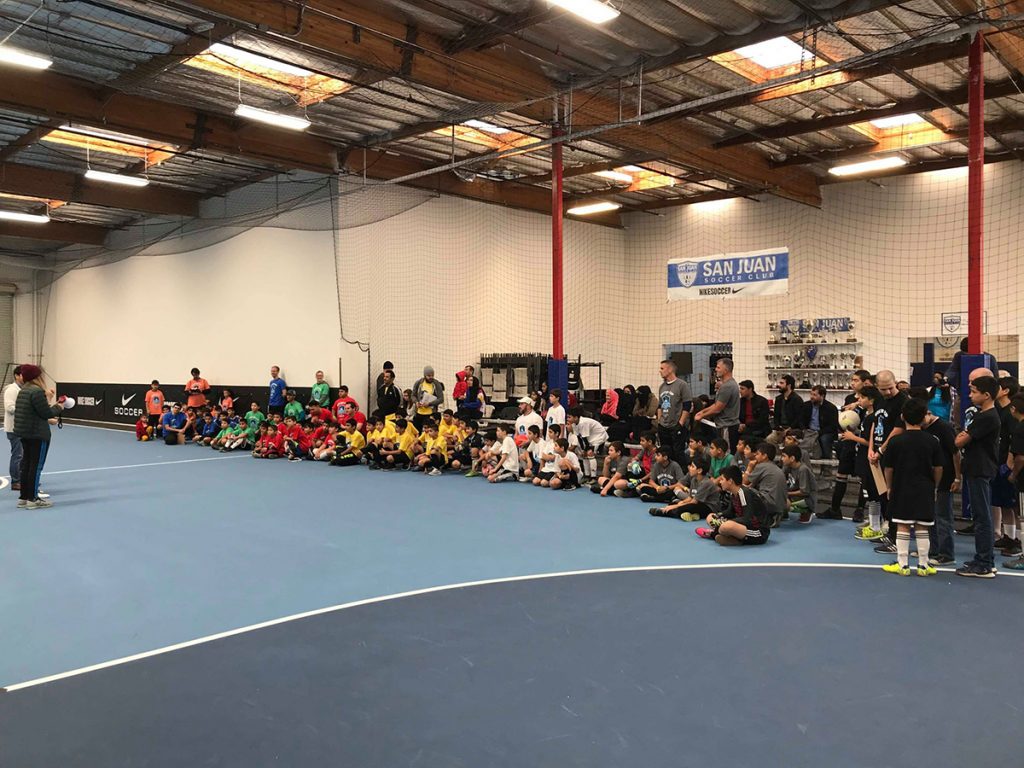
Organizing The Winter Cup was a massive community effort. San Juan Soccer Club not only donated their space but also water coolers, canopies, and even providing last minute apparel. One of their board members noticed several of the players in jeans and gave their coaches shorts for the finals, saying he didn’t want the players feeling left out. River City Christian Church provided a shuttle transporting many of the tournament participants. Twenty plus volunteers donated their time coaching, reffing, setting up, or helping with the carnival. Of volunteer efforts, Luke said, “I was really impressed by our coaches and refs who made everything go so smoothly and kept the kids ‘in it’ even if they were on a losing team. [They] were so encouraging to the players and parents…Watching the volunteers connect deeper with the Afghan community was wonderful!” Volunteer assistant coach, Mary Ann Wyatt, observed, “I could see how much joy this event brought the children and parents involved. It was exciting to see how everything came together so perfectly.” More than 75 players and their families were in attendance. Starting Point for Refugee Children brought dozens of supporters to cheer on their team. Members from San Juan school district and Starr King Elementary School’s principal came to support.
Events like The Winter Cup are new for World Relief Sacramento. For most of our history, we have served families through traditional resettlement services. This past year, however, we have shifted our focus, taken a step back, and reevaluated what it means to empower the local church and community to serve the most vulnerable. We are developing Children and Youth Services that support the entire family as they move from feeling stable to fully integrated in their new city. We look forward to what 2019 holds as we deepen our commitment to coming alongside and celebrating with our refugee neighbors.
Journeys to Belonging
This month we hosted our first storytelling night, “Journeys to Belonging,” at Beatnik Studios in downtown Sacramento. Over 200 attendees came to hear stories from refugee and immigrant women, as well as World Relief staff members highlighting different aspects of what it means to belong and feel connected to your new home. DeVon, Wade, World Relief’s Church Mobilizer, stated the fact that “when you know someone’s story, they move from being a stranger to becoming your neighbor.”
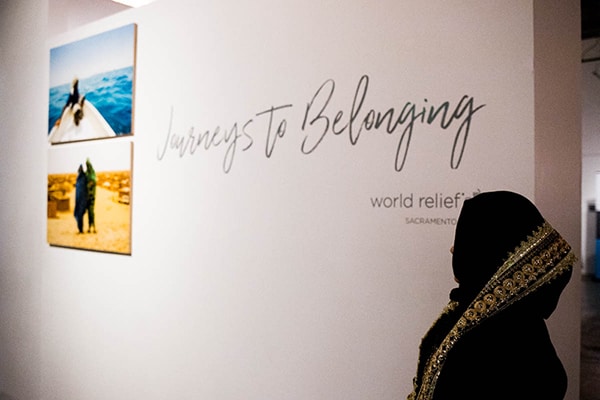
The night’s first speaker, Svitlana, came as a refugee from Ukraine. She and her husband wanted to raise their family in a safer place, one where there would be no threat of mandatory military service. She was expecting twins and was barely halfway through her pregnancy. Shortly after arriving in Sacramento, she went to the hospital for a checkup, and the doctor informed her that in a matter of minutes her first child would be born. At twenty seven weeks, she gave birth to her son and daughter. Her son needed an oxygen mask to breathe, and her daughter’s heartbeat was irregular. Svitlana’s World Relief caseworker asked what her family needed. They asked if World Relief could bring them food. They were spending as much time as they could at the hospital, going home only to shower, change clothes, and maybe get a few hours of sleep.
Svitlana expected World Relief volunteers to come, drop off food, and leave. She did not expect them to stay, to hold her children, to ask the doctors and nurses questions on their behalf. She did not expect to form friendships. Prior to coming to the United States, she thought of Americans as people who smiled and said, “How are you?” without meaning it. She no longer holds to that assumption and now describes Americans as genuine people. She concluded her story by inviting her husband and their two children to the stage, who were received with enthusiastic applause. At their last checkup, the doctors could not believe they had been born premature. Like the audience, all they saw were happy and active toddlers.
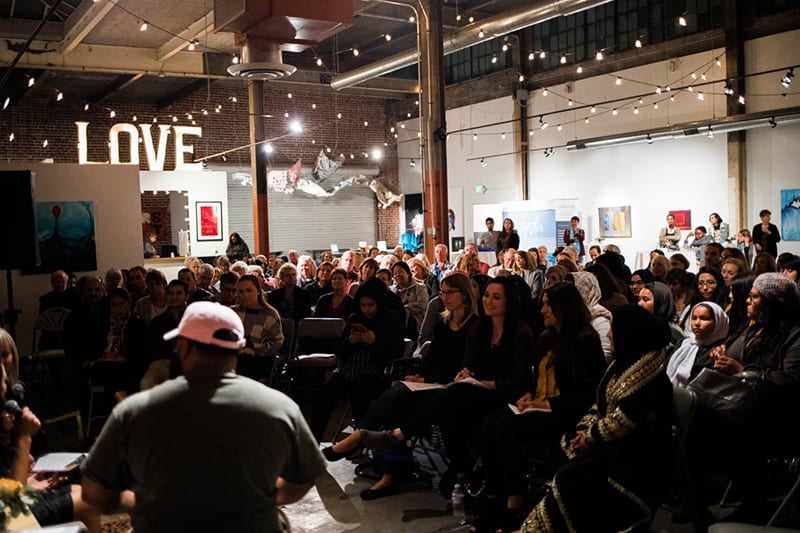
For the second storyteller, Irina, belonging had always been somewhat illusive. Born in Uzbekistan but having spent most of her life in Ukraine, she was ostracised. In her words, she was often “the only Asian girl in [her] class” and her family was protestant in an orthodox country. She and her husband, Paul, spent the first two years of their marriage in China, his home country. Because he was a Bible teacher, the government frequently threatened to revoke Irina’s visa. They tried returning to Ukraine, but when they refused to pay a bribe to the government, Paul’s visa was denied. So, they decided to seek asylum in the United States. Passports stacked on top of one another, they held hands and walked to the US-Mexico border. They were sent to detention centers on opposite ends of the country—Irina to Bakersfield,CA, and Paul to Georgia.
Of her detention experience Irina says, “I wouldn’t wish it on my worst enemy.” Even as she reflected on the experience, she told the audience about others who in her mind, however, had made more difficult journeys. Like the women from Eretria who started as group of four but were only three, their friend drowning while trying to cross a river. After four months, she won her case and came to Sacramento. Paul joined her a month later. Having spent most of their money on legal fees, they felt discouraged. A friend suggested they reach out to World Relief Sacramento for assistance. Irina was skeptical: “Why would they help me? I chose to leave Ukraine.” Nevertheless, she took her friend’s advice, and she and Paul received help with housing, employment, and transportation. This year they welcomed their first child, and Irina told the audience she was excited to raise her family in America. As a former client, she still feels connected to our office, maintaining friendships with staff. For her, Sacramento feels like home.
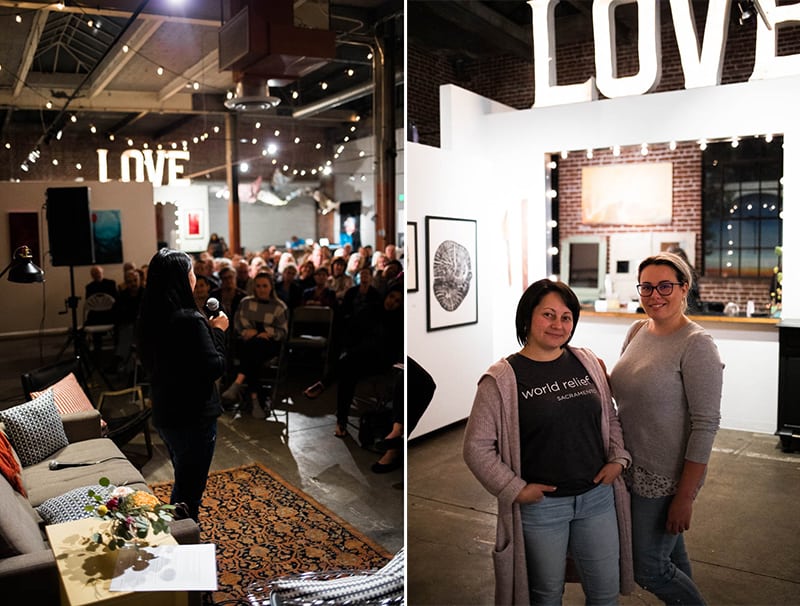
For Irina, making it to Sacramento was the start of her journey to belonging. Kobra, the night’s final storyteller, had hoped for the same. She thought that in America she would be a stronger, more independent woman. Growing up in Afghanistan, she had attended school for only four years before the Taliban banned girls from pursuing education. She liked school and had dreams of becoming a reporter. A few years ago, when she came to America, she enrolled in ESL classes. She wanted to learn the language, understand transportation systems and not be so dependent on her friends and neighbors who she felt had no time for her. The ESL classes, however, were not as helpful as she had hoped. The students were at different levels, most far more advanced than her, and when she asked questions, she was met with unkind, impatient remarks. She felt even more isolated and hopeless.
One of her friends had been attending World Relief’s ESL and activities classes. These were being (and continue to be) held at Kobra’s complex, and they are designed specifically for Afghan refugee women who have not learned to read or write in their native languages. The first few classes, Kobra said, she wasn’t sure what to think. Now, she wishes they were offered more than twice a week. She feels confident. The classes are good for her both “mentally and spiritually.” Kobra talked about practicing English with her husband and how she’d learned the difference between “love” and “like.” She flashed the audience a big smile as she said, “I love my husband. I like my mother-in-law.” The crowd laughed and cheered.
The number of refugees and displaced people is at an all time high. Now, more than, ever we want to hear refugee and immigrant voices. We are incredibly grateful for Svitlana, Irina and Kobra’s stories. Over the past three years, our region has welcomed more refugees than anywhere in the nation. Even as the number of refugees being admitted into the US decreases, our organizational mission does not change. The ingredients to making a new place home goes beyond the initial welcome and settling in process. We are committed to providing programs and services like employment and ESL classes that focus on integration and address barriers to belonging.
We are thankful for the staff who introduced each of our storytellers, to event volunteers who set up chairs and transformed a blank space into an intimate stage area that resembled a living room. We are grateful Society Church for providing AV and sound assistance, as well as our caterer, FreshMed, and the women from our refugee women’s classes who baked Afghan cookies for dessert. We look forward to hosting future social events like Journeys to Belonging where strangers become neighbors and friends become family.
The Lion Men of Afghanistan
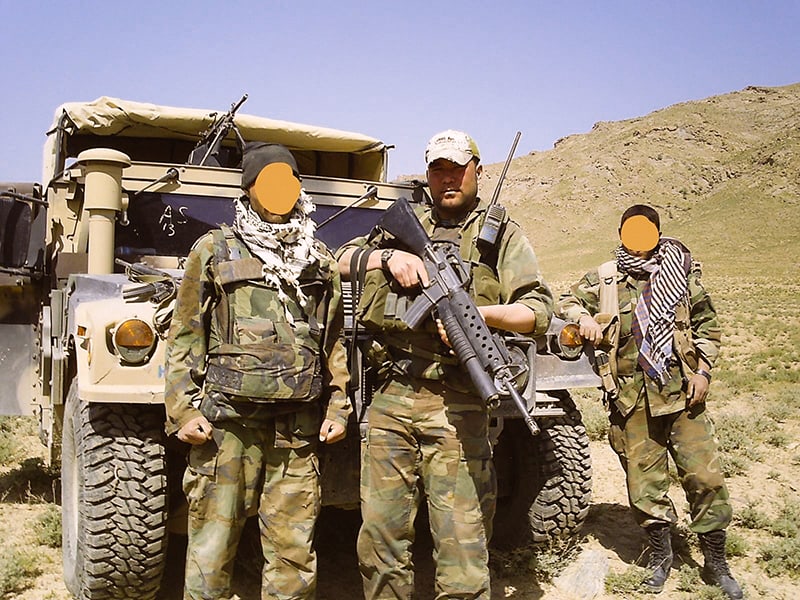
SACRIFICE AND THE COSTS OF THE REFUGEE SLOWDOWN
“As long as I am alive and breathing, you will be okay,” Ghulam exclaimed as he pulled Jawad out of the mangled U.S. army vehicle. They had trained for a scenario such as this many times before, but neither expected it would become their reality. Jawad, a linguist for the 82nd Airborne, had been trapped inside the very vehicle meant to protect him. He was bleeding badly and in shock. The unexpected IED strike killed Jawad’s co-passenger, and had it not been for Ghulam, Jawad might have experienced the same fate.
It would have been easy to panic, but Ghulam remained calm and even encouraging throughout. In Jawad’s words, he acted as a “true brother,” kindly laughing at Jawad’s fear and then giving him bravery and courage despite the grim circumstances. They had a job to do. There were three more sites to secure, three more IEDs to deal with. They needed to keep the Taliban at bay until reinforcements arrived. Jawad was medevac’d via Blackhawk helicopter to Lagman Hospital where he’d spend a month before making a full recovery. Ghulam had saved his life. By all accounts, he was a hero.
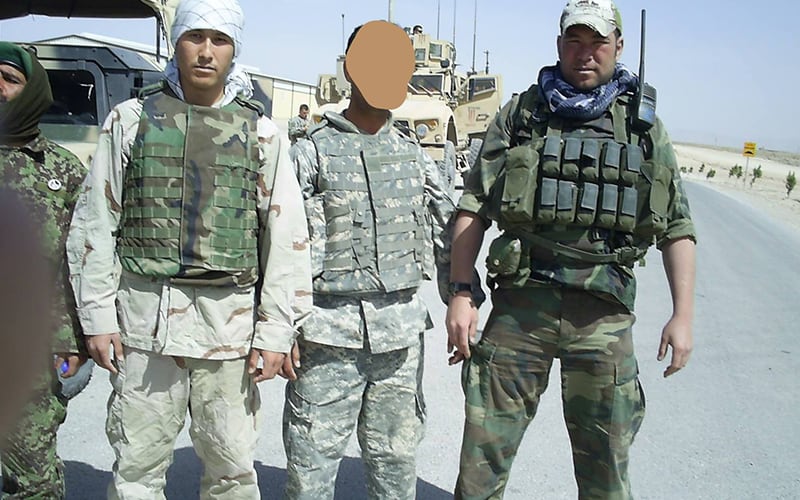
For 10 years, Ghulam served alongside the U.S. military in countless battles before making the difficult decision to apply for a Special Immigrant Visa (SIV) to come to the United States. Like so many Afghans and Iraqis who have dedicated their lives to serving our military efforts, this was a life-or-death decision for Ghulam. With more than 17,000 Afghans in the SIV pipeline, he knew obtaining a visa wouldn’t be easy. However, he hoped for a life free from combat where he could get married and have children. After all, he’d remained in contact with men like Jawad who had successfully come to the U.S. under the SIV program. Ghulam was never able to experience the life free from war he longed for. The extended screenings and waiting process proved fatal. This summer, Ghulam was killed by a Taliban-placed IED on the same stretch of road where he’d previously rescued Jawad.
From October 2016 through September 2017, the U.S. granted SIV status to 19,321 individuals from Afghanistan who had served the U.S. military. From October 2017 through September 2018, SIV arrivals were cut to just 9,953—less than half of the arrivals compared to the previous year. When asked about the drastic reduction in visas being issued, a Department of Homeland Security official said that “new vetting procedures to close security gaps and a more risk-based approach” had been implemented. This was after former Secretary of State Rex Tillerson directed American embassies to double down on visas and “increase scrutiny of visa applicants for potential security and non-security ineligibilities.” It is currently estimated that one SIV applicant is killed every 36 hours of fighting against terrorism in support of U.S. troops.
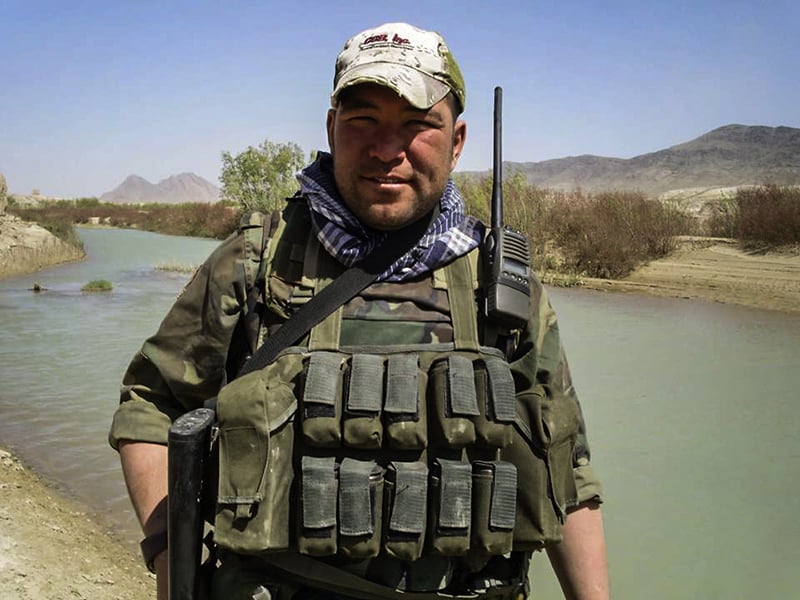
Though the security of America is the top priority in our policy and decision-making processes, we must also keep our political promises. When Congress passed the Afghan Allies Protection Act of 2009, we promised personal protection to Afghan nationals in exchange for their service and assistance of U.S. military actions within the country. Some of these roles consist of linguists, engineers, cultural advisors and soldiers. According to Scott Cooper, Director of National Security Outreach for Human Rights First, their participation remains vital for our intelligence collection efforts and the continued pursuit of peace in the region.
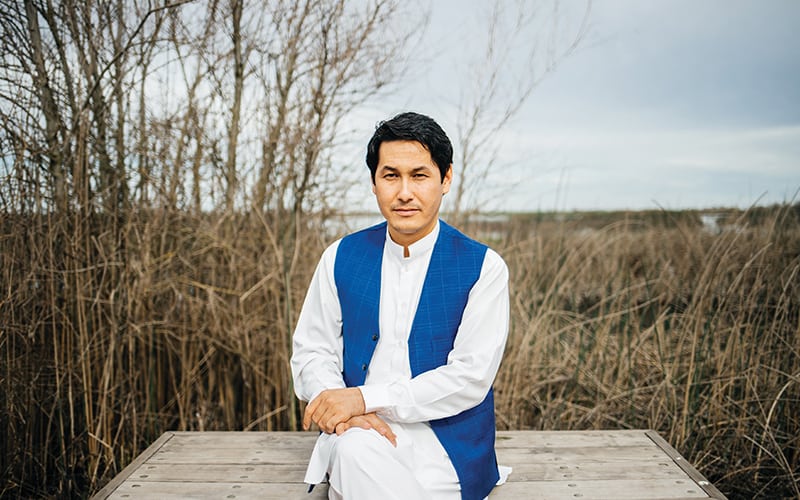
We must do better, balancing compassion and national security, as we remember those who have served alongside us. In January 2018, Jawad became World Relief Sacramento’s Afghan Cultural Advisor, acting as a liaison between staff and the refugees and immigrants we serve. He remains in contact with many of his “friends and brothers” who are still in Afghanistan waiting for their visas to be processed and the chance to experience what Ghulam had hoped for: a life of peace.
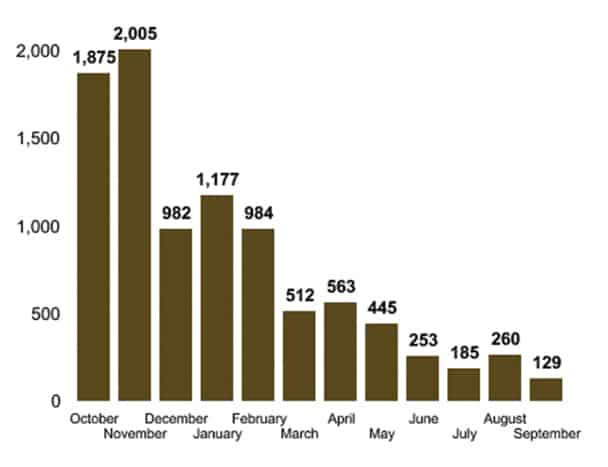
Resources Used
The Power of an Idea: Ara’s Story
“My name is Ara. I am 37 years old, and I am from Afghanistan.” She wears a floral print blouse and a black headscarf. She has just finished that day’s Vocational English class, which meets Monday through Thursday for four-hour sessions at World Relief Sacramento.
An interpreter is present, and when asked to tell her story, Ara switches from hesitant English to quick Dari. In some parts of Afghanistan, she explains, arranged marriages are common. She was twelve when she met and married her husband, who was many years her senior. After they married, the couple left Afghanistan and moved to Iran for safety. Together they had a son. Her expression, throughout the telling, remains serious and guarded. Life, she says, was difficult.
After twelve years of marriage, she divorced her husband and returned to Afghanistan. A young divorcee with a child in tow, Ara received at best a chilly reception. Not long after returning home, her husband declared that he wanted custody of their son. She knew the court would side with the child’s father; so again, she left home, this time fleeing with her son to Turkey.
She spent several years in Turkey, struggling to survive in a huge, foreign city. In 2015, she and her son received their refugee visas. They were to be resettled Sacramento, CA through World Relief. Upon arrival, she was greeted by her assigned caseworker, who along with other World Relief staff, helped Ara during her first 90 days in Sacramento with housing, social security card applications, medical appointments, and school enrollment for her son. With all of their basic needs met, it was time for her to find work. For several years, she did all sorts of jobs, mostly in restaurants and hotels as a dishwasher or housekeeper.
She wanted more. Her goal was to run a day care out of her home. In order to do so, however, she needed to learn English. World Relief partnered with LONA, a San Francisco based non-profit, to help cover her expenses for six months so she could attend World Relief’s ten week Vocational English class. On her first day, she was greeted by a familiar face. Her former caseworker was now her ESL teacher.
In addition to being determined, Ara is generous and constantly thinking of others. She wants to set up a day care in her home and show other women how to do the same. The daycare, however, is just the beginning. Her dream, she says, would be to build a community center where Afghan and Arabic women can learn English, make crafts, share skills and ultimately sell what they make. Too expensive, she said, waving the dream away, but her dream sparked an idea.
While World Relief does not have a community center, it does have a spare apartment in a nearby apartment complex. The furnished apartment serves as temporary housing for families. In June, World Relief launched two pilot programs designed for women, using the apartment as a teaching and meeting space. One meets on Tuesdays and Fridays, where the women gather for social activities and for a brief ESL lesson. Another is an ESL class that meets Mondays and Wednesdays.
On Tuesdays and Fridays, the sparsely furnished apartment transforms into a lively gathering space that feels homey and warm with 10 to 15 Afghan women and several World Relief staff and volunteers present. So far, the group has made earrings, gone on a trip to the fabric store, baked American and Afghan cookies, and started a macramé project. They have learned to spell their names and say their birthdays in English, and how to call 911 for emergencies. During the fourth week, the program coordinator asked the group what projects and ESL lessons they had liked. A woman who during the first few meetings had barely spoken said that she liked knowing how to spell her name and address. Another woman said, “I like everyone here.” Another, more exuberant member of the group agreed, and added, “I like everything!”
On Mondays and Wednesdays, the group is smaller, fitting on the apartment’s two sectionals. The ESL instructors demonstrate greetings the class has learned with an inflatable ball. “How are you?” the instructor asks the co-instructor and throws her the ball. “I’m fine, how are you?” the co-instructor says, tossing the ball back. They repeat this simple exchange several times before the instructor moves on to the next greeting. “How are you?” tossing the ball to the co-teacher, who with dramatic flourish, answers, “I’m tired. How are you?” With equal gusto, the teacher says, “I’m tired” and slumps in her seat. After observing for several minutes, the women join in the exercise, some following the instructors’ leads and slumping or straining their voices when they catch the ball and answer, “I’m tired. How are you?”
There are not whiteboards, no handouts, no pencils or notebooks. The curriculum is designed for pre-literate learners. “We move on,” the instructor explains, “When the group is ready.” The students, not the teachers, set the pace. In the first week of class, a very pregnant woman joined them. The instructors assumed she would not be able to finish the course, and after the second week, she gave birth to her son. Traditionally, Afghan women stay home to be taken care of by their families for forty days after giving birth. However, the woman came back with her son to class just ten days after his birth. She wanted to resume learning English as soon as she could. Her return gave the group a chance to learn a multi-syllabic tongue twister of a word: “Con-gra-tu-la-tions!”
World Relief hopes to continue to build on Ara’s dream and serve more women across Sacramento County. Once these pilots wrap up, they hope to launch several more in different refugee dense apartment complexes. They have started a crowdfunding campaign to help fund future efforts. As Ara puts it, all women should have the chance to learn, the chance to work if they want to, and the chance to be self-sufficient in their new country.
For the sake of confidentiality, names in this story have been changed have been changed.
DACA Renewal Services: Needed Relief in Uncertain Times
In July, the Immigration Legal Services (ILS) program offered DACA renewal services for the first time to over 60 individuals through volunteer-staffed workshops.
In 1998, Brandon Vega Ayala came to the U.S. at the age of two. His mother decided to flee an abusive relationship and her family saved the money to help her and her son cross the border without authorization. In doing so, Brandon became one of the so-called “DREAMers,” or undocumented youth brought into the country as young children.
In his early years in the U.S., Brandon moved often around the Sacramento area with his mother. They eventually established themselves in the Rosemont area and he attended Hiram Johnson High School. “My mom told me I had to be careful, that I didn’t have papers,” Brandon explained. He participated in numerous clubs and sports in school, but his lack of status thwarted his dreams. “I planned to join the U.S. military, but my immigration status prevented me from enlisting.”
When the Deferred Action for Childhood Arrivals (DACA) program was announced in 2012, Brandon was a sophomore. The new program provided protection from deportation and a work permit that was renewable every two years. He filed for DACA and has renewed it ever since.
Today, Brandon lives a full life, in part owing to his DACA protections. Last December, he married Paulina, a friend from high school. He works 50 hours a week at a grocery store while taking college classes on the side to complete programs in business management and electrical engineering.
Last September, President Trump ended the DACA program and observers hoped the action would spur a permanent legislative solution for DREAMers, but a new law has not materialized. While several federal judges ordered that the program remain open for renewal applications, it was expected another conflicting judicial decision in August 2018 might lead to the DACA program’s permanent termination. Advocates recommended DACA-holders renew while it was still possible.
Brandon wanted to renew and had friends who had been going to private attorneys and paying over $1,500 to file renewal applications, an amount he couldn’t easily spare. His wife researched resources to renew and found a listing for World Relief Sacramento’s first free DACA renewal workshop.
“The ILS program has moved into a new direction with these workshops to help meet the tremendous need in the community,” shared Ted Oswald, the ILS manager at World Relief Sacramento. Thanks to a California state grant, the ILS program covers the $495 application fee for income-eligible individuals like Brandon, and prepares, reviews, packages, and submits applications, all for completely free. The workshops have been a success. “Over just three evenings, our small ILS team’s efforts have been multiplied by 10 amazing volunteers to serve over 60 DACA-recipients.”
Brandon attended the inaugural workshop with his wife and expressed his gratitude to the ILS team by email afterward. “The workshop touched my wife and I with your team’s kindness and dedication in helping me,” Brandon wrote. “Considering the political backlashes we receive daily, this has brought hope and “relief” into our lives.”











